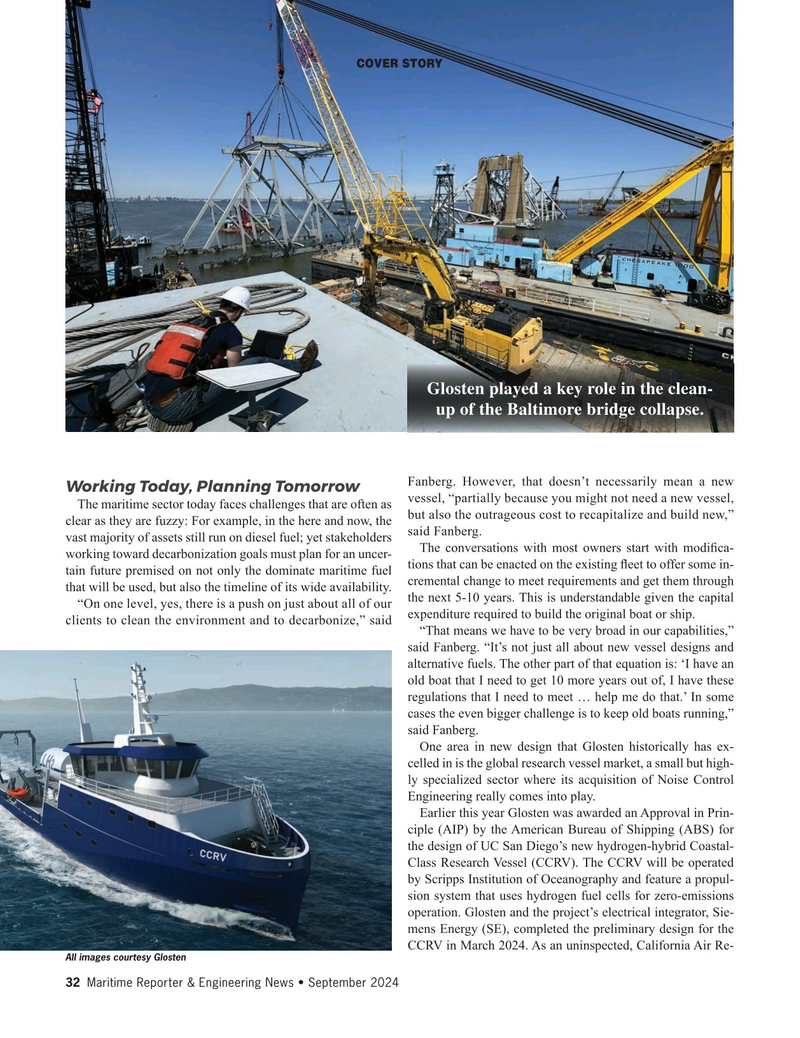
Page 32: of Maritime Reporter Magazine (September 2024)
Read this page in Pdf, Flash or Html5 edition of September 2024 Maritime Reporter Magazine
COVER STORY
Glosten played a key role in the clean- up of the Baltimore bridge collapse.
Fanberg. However, that doesn’t necessarily mean a new
Working Today, Planning Tomorrow vessel, “partially because you might not need a new vessel,
The maritime sector today faces challenges that are often as but also the outrageous cost to recapitalize and build new,” clear as they are fuzzy: For example, in the here and now, the said Fanberg.
vast majority of assets still run on diesel fuel; yet stakeholders
The conversations with most owners start with modi? ca- working toward decarbonization goals must plan for an uncer- tain future premised on not only the dominate maritime fuel tions that can be enacted on the existing ? eet to offer some in- cremental change to meet requirements and get them through that will be used, but also the timeline of its wide availability.
the next 5-10 years. This is understandable given the capital “On one level, yes, there is a push on just about all of our clients to clean the environment and to decarbonize,” said expenditure required to build the original boat or ship. “That means we have to be very broad in our capabilities,” said Fanberg. “It’s not just all about new vessel designs and alternative fuels. The other part of that equation is: ‘I have an old boat that I need to get 10 more years out of, I have these regulations that I need to meet … help me do that.’ In some cases the even bigger challenge is to keep old boats running,” said Fanberg.
One area in new design that Glosten historically has ex- celled in is the global research vessel market, a small but high- ly specialized sector where its acquisition of Noise Control
Engineering really comes into play.
Earlier this year Glosten was awarded an Approval in Prin- ciple (AIP) by the American Bureau of Shipping (ABS) for the design of UC San Diego’s new hydrogen-hybrid Coastal-
Class Research Vessel (CCRV). The CCRV will be operated by Scripps Institution of Oceanography and feature a propul- sion system that uses hydrogen fuel cells for zero-emissions operation. Glosten and the project’s electrical integrator, Sie- mens Energy (SE), completed the preliminary design for the
CCRV in March 2024. As an uninspected, California Air Re-
All images courtesy Glosten 32 Maritime Reporter & Engineering News • September 2024
MR #9 (18-33).indd 32 9/3/2024 11:01:35 AM

 31
31

 33
33
